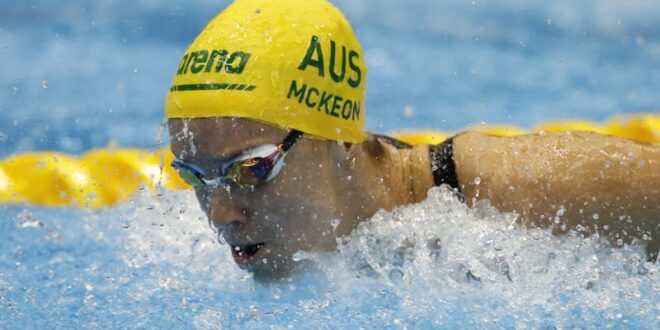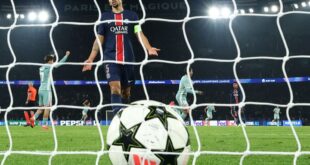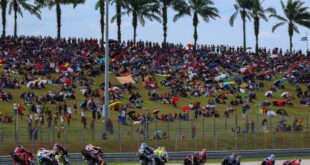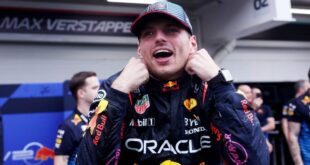MELBOURNE (Reuters) – Kaylee McKeown came within a whisker of her 100 metres backstroke world record at Australia’s Olympic trials on Tuesday but was more impressed with rival Mollie O’Callaghan’s swim than her own.
Olympic champion McKeown won the final in 57.41 seconds, the event’s second fastest swim in history and only 0.08 seconds short of her best (57.33) from the World Cup event in Hungary last year.
Challenged by runner-up O’Callaghan, who clocked 57.88, McKeown was well ahead of record pace until flagging in the final metres at the Brisbane Aquatic Centre.
“I’m not going to lie, I was a bit disappointed with that,” said the 22-year-old, who now owns the seven fastest times in the event along with the 200m backstroke world record.
“You know there’s always room for improvement. I’m glad to have someone else joining the 57-second club.”
McKeown’s sizzling swim came a day after posting the fourth fastest 200m individual medley time for victory in the final.
O’Callaghan, the 100 and 200m freestyle world champion, has transformed into a formidable backstroker this year to spur McKeown on.
The redhead smashed her previous personal best of 58.09 set at the Australian Open Championships in April and became the fourth swimmer to break 58 seconds, joining McKeown, American Regan Smith and Canadian Kylie Masse.
“I was not expecting that but I’m really happy with the result,” said 20-year-old O’Callaghan, who has yet to swim her freestyle events.
“There’s more to come this week. So, definitely nervous for it but it’s a great way to start it off.”
BREASTSTROKE WEAKNESS
O’Callaghan’s backstroke improvement has boosted Australia’s medley relay depth for Paris, though breaststroke remains a distinct weakness following Chelsea Hodges’s retirement last month due to injuries.
Hodges helped Australia beat the powerful United States for the gold medal at the Tokyo Games but there was no standout successor emerging from the 100m breaststroke final on Tuesday.
Jenna Strauch won in 1:06.90, edging Ella Ramsay by 0.04 seconds, but neither reached Australia’s Olympic qualifying standard of 1:06.31.
Abbey Harkin, part of the nation’s silver medal-winning medley relay team from the Fukuoka World Championships last year, was further off the pace in fourth (1:07.18).
There was also disappointment in the men’s 100m backstroke as winner Isaac Cooper (53.46), the world champion in the non-Olympic 50m backstroke, failed to reach Australia’s Olympic benchmark (53.21).
Australia have brighter prospects in the men’s 200m freestyle, three years after taking bronze in the relay won by Britain at Tokyo.
Max Giuliani, second only to Ian Thorpe in the nation’s 200m record book, won the final in 1:45.83 ahead of Thomas Neill (1:46.02).
“You can count on Australia bringing a very strong team for that (relay) and trying to stick it to the Brits,” said Neill.
(Reporting by Ian Ransom in Melbourne; Editing by Ken Ferris)
 BeritaKini.biz Berita Viral Terkini di Malaysia
BeritaKini.biz Berita Viral Terkini di Malaysia





